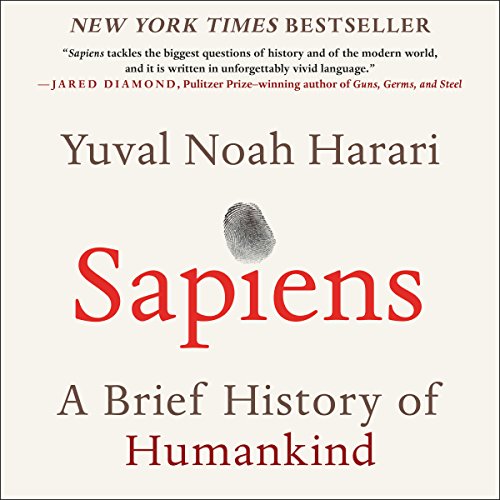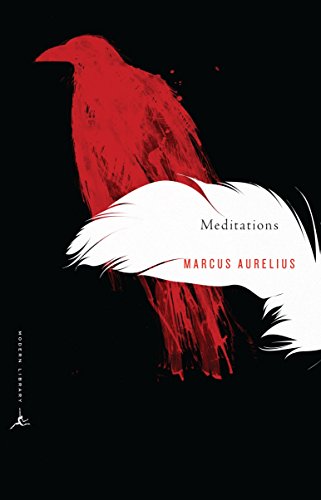Discover the best modern philosophy books to expand your mind and engage with today’s most pressing issues. These books offer innovative insights into topics like ethics, social justice, and technology, bridging timeless questions with the challenges of the 21st century.
Best Modern Philosophy Books
Ikigai: The Japanese Secret to a Long and Happy Life by Héctor García & Francesc Miralles
Pros:
✅Unveils profound concepts in simple terms
✅Encourages application to daily life
✅Enhances well-being through engaging anecdotes
✅100% worth the money
Cons:
❌Some readers might desire a more rigorous academic approach
“Ikigai: The Japanese Secret to a Long and Happy Life” provided a reflective reading experience, offering wisdom on finding purpose and joy through the lives of Okinawans known for their longevity.
The book combines real-life stories with practical advice, encouraging the reader to evaluate their daily routines and embrace community, activity, and joy.
The reader found personal value in the book’s guidance, leading to a deeper understanding of their own passions and a renewed approach to living a fulfilling life.
The narrative served as both a guide and a companion in the pursuit of a well-lived life, instilling a sense of clarity and enthusiasm.
Philosophy 101: From Plato and Socrates by Paul Kleinman
Pros:
✅Engaging writing style makes complex topics approachable.
✅Covers a broad range of philosophic thoughts and eras.
✅Excellent primer for beginners with concise explanations.
Cons:
❌Presentation of topics is not in chronological order, which can be confusing.
“Philosophy 101” serves as an accessible and engaging introduction to philosophical thought, presenting key concepts from ancient to modern times in a clear and concise manner.
The book’s structure encourages spontaneous exploration, making the reader’s first foray into philosophy an invigorating experience rather than an intimidating one.
While not a deep dive, it provides a solid foundation for anyone beginning their journey into philosophy, demonstrating its relevance and intrigue beyond academic circles.
Sapiens: A Brief History of Humankind by Yuval Noah Harari
Pros:
✅Offers an expansive look at human history
✅Thought-provoking content that's bound to spark conversations
✅Narration is clear and enhances the experience
Cons:
❌Not a deep dive into specific historical events
Having just spent over 15 hours immersed in “Sapiens: A Brief History of Humankind,” I’m struck by how Yuval Noah Harari manages to condense the vast expanse of human history into a narrative that’s both captivating and enlightening.
My commute has been transformed into a time machine, thanks to Derek Perkins’ engaging narration that brings Harari’s words to life.
Derek Perkins’ clarity and pacing are impeccable, keeping me hooked on the rise and fall of civilizations as I clean my apartment or prep for dinner.
It’s as if he’s right there, weaving the story of humankind in my living room.
The beauty of the narration is how it turns complex insights into something I can grasp. Whether it’s the agricultural revolution or the twists and turns of human evolution, each chapter feels like a new discovery.
It’s worth mentioning, though, that “Sapiens” doesn’t dive deep into every historical nuance, which can sometimes leave me wanting more detail on particular events. That’s the trade-off for such a broad overview in just 15 hours.
However, the book’s expansive scope draws me to reflect on our collective past and how it shapes our present, sparking dinner table discussions that linger long into the night.
“Sapiens” isn’t your typical, dry retelling of history. It’s a vivid walk through the epochs of our species, and by the time the last word rings out, I feel like I’ve traveled eons. This audiobook isn’t just an account; it’s an experience, inviting me to ponder where we’ve been and, more intriguingly, where we’re headed.
Meditations by Marcus Aurelius: A New Translation
Pros:
✅Offers timeless wisdom applicable to modern life
✅Gregory Hays' translation is both accessible and engaging
✅Compact and lightweight, easy to carry around and read anytime
Cons:
❌Some passages might require re-reading for full comprehension
Reading “Meditations” by Marcus Aurelius, translated by Gregory Hays, is like engaging in a timeless conversation with the past.
The text, written by a Roman emperor, remains strikingly relevant, offering guidance and wisdom that resonate with the challenges of modern life. T
he clear translation ensures the prose is accessible and impactful, making ancient philosophy applicable to today’s reader.
Finishing the book leaves one with a sense of connection to humanity’s enduring search for meaning and a greater inclination towards reflection and self-improvement.
Evil in Modern Thought by Susan Neiman
Pros:
✅Unpacks complex ideas with clarity.
✅Explores a rarely discussed yet crucial topic.
✅Offers a historical panorama of great thinkers.
Cons:
❌Might be challenging for beginners.
“Evil in Modern Thought” offers an enriching exploration of the philosophical evolution of the concept of evil, engaging the reader in a historical narrative that spans various eras and thinkers.
The author’s clear explanations illuminate the complex theories of philosophers like Nietzsche and Freud, making the subject matter accessible and relevant to modern issues.
The book demands concentration and a willingness to tackle challenging material, but the intellectual reward for such engagement is a deeper understanding of evil’s role in philosophy and perhaps a transformed perspective on life.
This is a demanding yet enlightening read for those prepared to delve into one of humanity’s most profound questions.
The Philosophy Book by DK
Pros:
✅Presents complex ideas in an accessible manner
✅Covers a broad range of philosophical topics
✅Useful graphics aid in understanding,
Cons:
❌Can repeat points occasionally
“Philosophy Made Simple” effectively demystifies complex philosophical ideas, presenting them in a format that is easy to understand for those new to the subject.
The use of visuals and graphs aids in clarifying the progression of philosophical thought, and the text covers a wide range of philosophers and their ideas.
While it occasionally repeats concepts for the sake of clarity, the book may overlook some of the subtleties of philosophy in its pursuit of simplicity.
It is not designed for in-depth scholarly analysis but serves as an excellent introductory platform for further exploration of philosophical works. The authors succeed in making philosophy accessible to a broader audience, leveling the academic playing field.
Stoicism: How to Use Stoic Philosophy to Find Inner Peace and Happiness Jason Hemlock
Pros:
✅Incredibly relatable and applicable to modern life
✅Easy to digest with practical advice
✅A perfect introduction to Stoic philosophy for beginners
Cons:
❌Lacks depth in historical context for experienced readers
The book “Stoicism for Inner Peace” serves as a modern-day manual for applying Stoic philosophy to everyday life, providing comfort and guidance akin to a conversation with a wise friend.
The author excels at distilling complex Stoic ideas into practical, actionable advice, making ancient wisdom accessible and relevant to contemporary readers.
The inclusion of straightforward practices at the end of each chapter helps readers integrate these teachings into their daily lives, fostering resilience and calmness.
Finishing the book leaves one empowered, with Stoic principles transformed into personal mantras for happiness and tranquility. It’s an ideal read for those seeking to face life’s challenges with grace and poise.
The 48 Laws of Power by Robert Green
Pros:
✅Provides a comprehensive analysis of power through historical anecdotes
✅Offers strategic insights that apply to various aspects of life
✅Engrossingly written, making complex concepts accessible
Cons:
❌Some may find the moral implications of the laws unsettling
“The 48 Laws of Power” by Robert Greene offers a compelling examination of power dynamics through historical examples, providing readers with strategic insights applicable to various aspects of life.
Greene’s ability to distill complex concepts into practical advice allows for a recalibration of professional and personal strategies. Each law serves as a reflection on the nature of influence and control, making the book a potent tool for enhancing strategic thinking.
While the book’s candid exploration of power may be disconcerting to some and its recommendations potentially controversial, it challenges readers to contemplate the ethical dimensions of power.
Engaging with this book is akin to attending a masterclass in the often-unspoken intricacies of social and political maneuvering.
The Stoic Man’s Guide by William T. Harrison
Pros:
✅Breathes new life into ancient philosophy
✅Tailored with practical, modern examples
✅Enhances personal growth and emotional resilience
Cons:
❌A concise read that may leave you wanting more
“The Stoic Man’s Guide” provides practical strategies derived from Stoic philosophy to navigate the complexities of modern life with ease and composure. The book’s succinct insights offer a fresh perspective, transforming how the reader handles life’s challenges.
Each chapter acts as a personal mentoring session, equipping the reader with the tools to remain calm and collected in the face of adversity.
The author bridges the gap between ancient philosophy and contemporary living, demonstrating how Stoicism can be seamlessly integrated into daily routines to build a life characterized by fulfillment and resilience.
This guide makes philosophy approachable and directly applicable, offering a helping hand for anyone looking to adopt a Stoic approach in the modern world.
The Boy, the Mole, the Fox and the Horse by Charlie Mackesy
Pros:
✅Offers valuable lessons wrapped in a simple narrative
✅Exquisite hand-drawn illustrations that enhance the reading experience
✅Provides poignant moments that resonate with readers of all ages
Cons:
❌Primarily suited for those who appreciate metaphorical storytelling
“The Boy, the Mole, the Fox and the Horse” is a visually and philosophically enchanting book that pairs hand-drawn illustrations with thoughtful dialogue to create a modern fable.
The gentle narrative pace and the simplicity of the characters’ journey encourage self-reflection and the contemplation of universal truths. The book’s dialogue-based format offers a unique and engaging way to explore themes of friendship, kindness, and courage.
Despite its brevity, the story arcs of the characters prompt readers to connect with their own life experiences, serving as a heartfelt reflection.
The book is filled with timeless messages of wisdom and compassion, making it a treasure trove of insightful lessons meant to be savored and shared.
FAQ – Best Modern Philosophy Books
What is the best philosophy book to read?
“The Republic” by Plato offers profound insights into justice, governance, and the human condition. Its exploration of the ideal state and the nature of reality continues to captivate readers, making it a timeless masterpiece in philosophy.
Are there any good modern philosophers?
Yes, numerous modern philosophers contribute significantly to contemporary thought. Some notable figures include Martha Nussbaum, Slavoj Žižek, Judith Butler, and Peter Singer, each offering unique perspectives on ethics, politics, and social theory.
What is modern philosophy called?
Modern philosophy typically refers to the philosophical thought that emerged in Europe during the 17th and 18th centuries, encompassing thinkers like René Descartes, John Locke, David Hume, and Immanuel Kant. However, “modern philosophy” can also refer to contemporary philosophical discourse, addressing current issues and ideas.
What is philosophy books?
“Philosophy books” refer to written works that explore various philosophical ideas, concepts, and theories. These books cover a wide range of topics such as ethics, metaphysics, epistemology, logic, political philosophy, and aesthetics. They often provide analysis, argumentation, and reflections on fundamental questions about existence, knowledge, morality, and the nature of reality. Examples include Plato’s “The Republic,” Aristotle’s “Nicomachean Ethics,” Descartes’ “Meditations on First Philosophy,” and Nietzsche’s “Thus Spoke Zarathustra.”
If you liked this blog post about the topic: “Best Modern Philosophy Books”, don’t forget to leave us a comment down below to tell us about your experience with it.
If you want to keep reading more from us, have a look at these articles.















